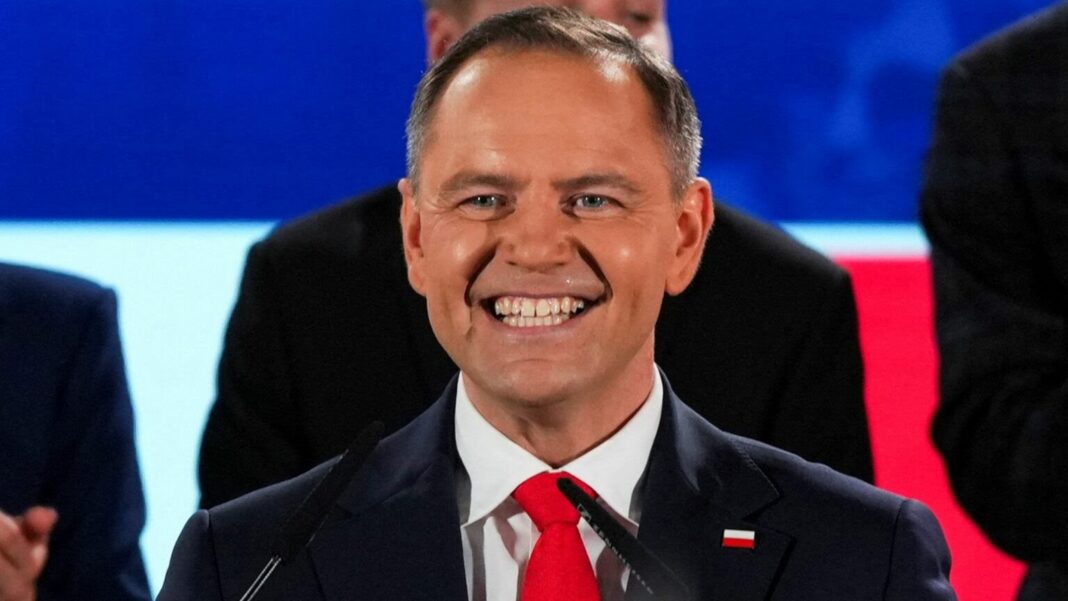Karol Nawrocki has been elected President of Poland after a closely contested second-round vote, official results confirmed on Monday.
The 42-year-old historian and former head of the Institute of National Remembrance won 50.89% of the vote, narrowly defeating Warsaw Mayor Rafal Trzaskowski, who garnered 49.11%, according to the National Electoral Commission.
Nawrocki, backed by the right-wing Law and Justice (PiS) party, campaigned on a platform emphasizing national sovereignty, conservative values, and skepticism toward the European Union and immigration.
His victory signals a potential political standoff with Prime Minister Donald Tusk’s centrist, pro-EU government, which lacks the parliamentary majority needed to override presidential vetoes.
In his victory speech, Nawrocki told supporters, “We will win and we will save Poland.” Outgoing President Andrzej Duda, who endorsed Nawrocki, congratulated him on X (formerly Twitter), thanking voters for a high turnout of 71.63%.
Campaign Highlights and Controversies
The election was hotly contested, with both candidates claiming victory after exit polls showed a virtual tie.
Nawrocki’s campaign included a high-profile visit to the U.S., where he met with former President Donald Trump. He also received backing from U.S. Secretary of Homeland Security Kristi Noem during a conservative conference in Poland.
Nawrocki faced scrutiny during the campaign over past real estate dealings, his time working as a security guard, and a resurfaced history linked to football hooliganism all of which he denied.
Observers say his presidency could stall progressive reforms, including those related to LGBTQ+ rights and abortion laws, pushed by Trzaskowski and the Civic Coalition.
His critical stance on Ukraine’s bid to join the EU and NATO, as well as his call to limit aid for Ukrainian refugees, has drawn concern in Kyiv and Brussels.
Implications for Poland and the EU
Nawrocki’s win is expected to embolden the PiS party and may deepen Poland’s political divide. Analysts warn it could lead to legislative gridlock or even early parliamentary elections if tensions with the ruling coalition escalate.
With a population of 38 million, Poland remains a key player in European politics and a major hub for Western aid to Ukraine. Nawrocki’s election may have lasting implications for EU relations and the country’s domestic political trajectory.

